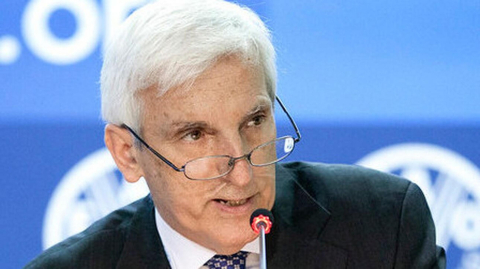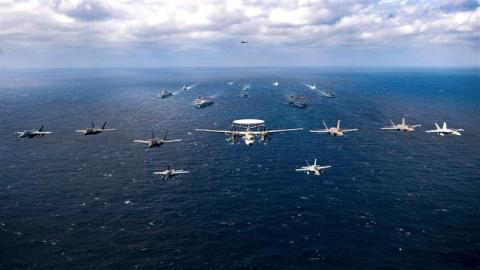3301 publications
Russian Civil-Military Relations: Is There Something New with Medvedev ?
The G20 and the Challenge of International Financial Re-regulation
The crisis, it is now widely accepted, means that markets failed. Meeting for the first time in Washington in November 2008, the G20 embarked in a ride of re-regulation. Months of negotiations later, it dramatically appears different to agree on principles and broad objectives, and to write and enforce rules and commitments.
Oil and Gas Delivery to Europe: An Overview of Existing and Planned Infrastructures. New Edition
The European Union’s hydrocarbon energy supply depends heavily on imports. While the European Commission has recommended diversifying and increasing domestic resources, notably with renewable resources which should grow to 20% by 2020, dependence on hydrocarbon imports will remain not only substantial, but will increase.
What Now for Obama ?
Larry J. Sabato, Professor of Politics at the University of Virginia, provides us with solid historical references and tools of analysis to understand midterms in general and those of 2010 in particular.
He points to the damaging effect of Tea Party candidacies on the Republican victory in the Senate, and on the impact of Republican gains on the 2011 redistricting process. But the bad economy seems to have been the key issue for 2010 voters - it may be key as well in the 2012 presidential election.
Updating the Debate on Turkey in France, on the 2009 European Elections' Time
Turkey has become a recurrent issue in France's domestic political debate, following the referendum campaign on the European Constitutional Treaty in spring 2005. While the question of Turkish EU membership is itself a point of discussion, evoking Turkey also touches on other sensitive political issues in France. It elicits controversy that goes beyond the Left-Right cleavage. In this article, Alain Chenal* studies the trend in the evolution of the debate during the campaign for the European elections in June 2009.
Dorothée Schmid, Head of the Contemporary Turkey Program at the IFRI
How the Chinese See Russia
This essay examines Chinese attitudes toward Russia as a great power, neighbor, partner and competitor.
Caveats to Civilian Aid Programs in Counterinsurgency: The French Experience in Afghanistan
Amaury de Féligonde has just spent one year in Kapisa and Surobi as a project manager within the Afghan-Pakistan Interministerial Unit. Back in France, he expresses his personal views and draws conclusions from his experience.
Global Governance of Biodiversity: New Perspectives on a Shared Challenge
This report aims to provide a first mapping of the global governance of biodiversity, through an investigation of the interactions between the various actors, institutions, norms, tools and processes that structure it. It chooses to do so by bringing together different visions or perceptions on the nature, shape and characteristics of the current global governance of biodiversity.








